
Japanese Artist Illustrates 14 Drawings Of Humans With Animal-Like Bone Structure
The drawings are weird yet captivating, it's really hard not to stare too closely.

Not all interesting things have to be beautiful. At times, even peculiar stuff can keep us humans intrigued as well.
One Japanese illustrator uses his imagination to create intricately drawn and strange drawings. In a series of illustrations, he illustrated how humans would look if they bones and poses like animals.
Today, we're looking at those weird yet fascinating drawings. He included the animals' anatomical structure as well.
Kawasaki is popular for his meticulous illustrations of futuristic, modern, and extinct animals. He focuses on the topics of evolution and paleontology, both facts and theoretical.
According to the Japanese illustrator, he became an authentic artist after he started his own website and blog. He has always wanted to draw, according to him.
Kawasaki includes reading books and internet research to develop different ideas for his drawings. He added that every illustration he produces would take different durations of time.
His drawing speed will depend on the necessary details and context. For Kawasaki, he has no other choice but to continue drawing.
As of writing, Kawasaki has 25.8K followers on Twitter. His thousands of followers prove that a lot of people are impressed by his nature drawings.
A number of them even have funny twists. He truly deserves fame as he creates illustrations that keep your eyes glued.
1. A human turtle
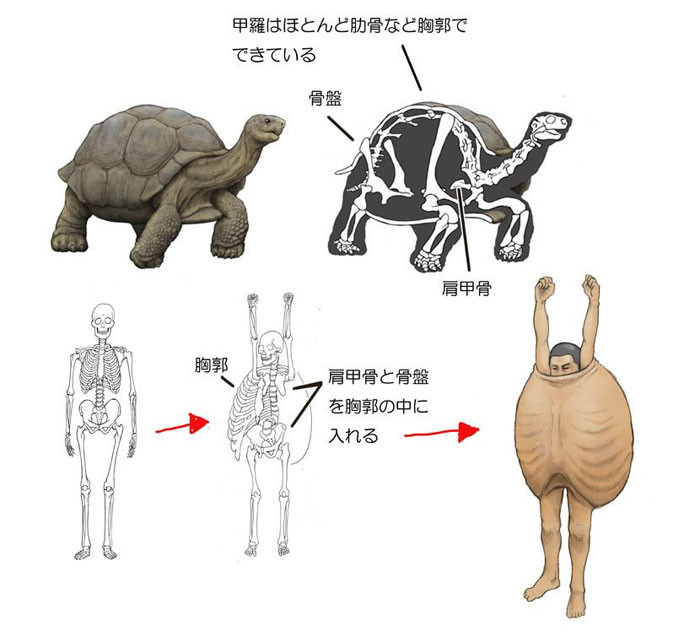 Satoshi Kawasaki
Satoshi Kawasaki2. Human horse
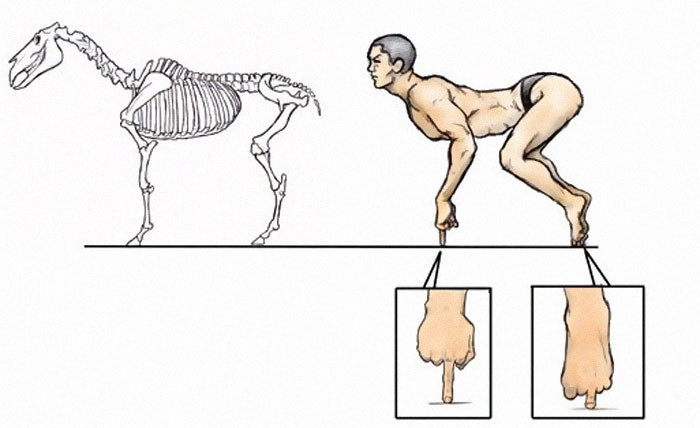 Satoshi Kawasaki
Satoshi Kawasaki
3. Human flamingo
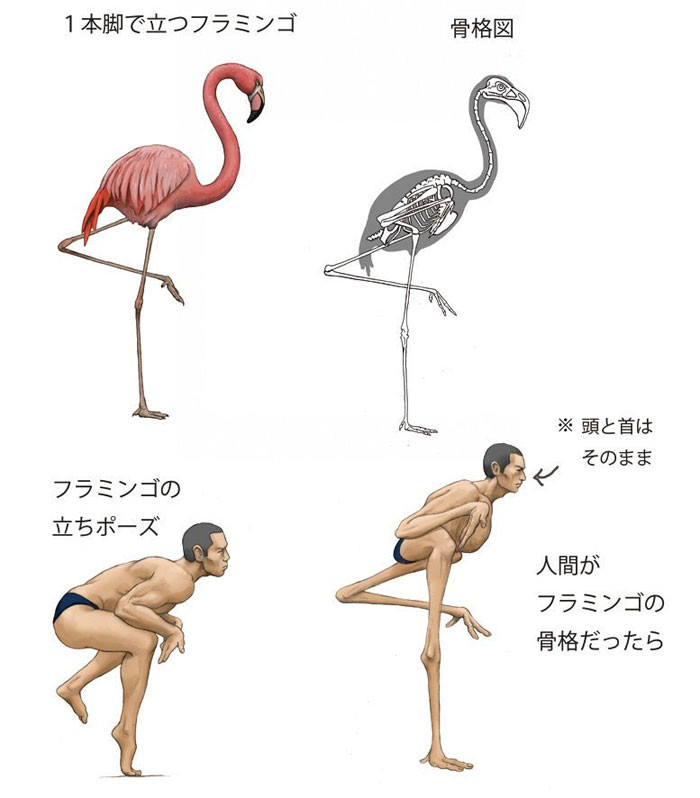 Satoshi Kawasaki
Satoshi Kawasaki4. What human legs would look like when they turn into animal legs.
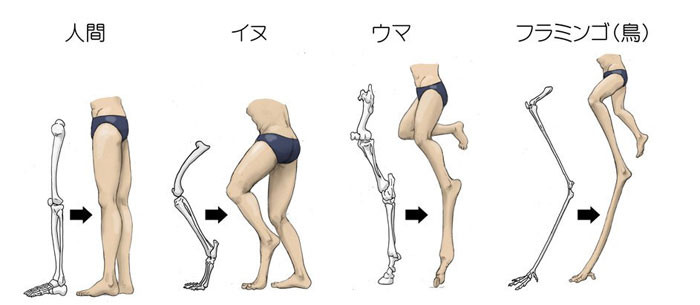 Satoshi Kawasaki
Satoshi Kawasaki
5. Human penguin
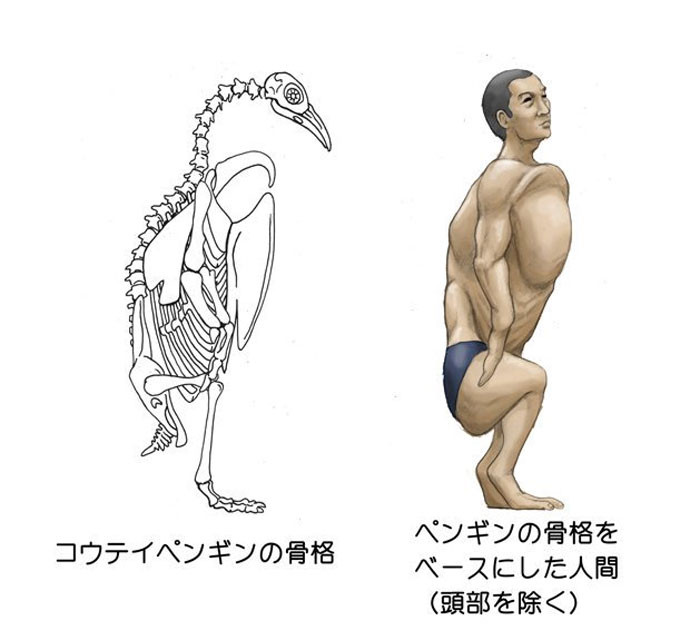 Satoshi Kawasaki
Satoshi Kawasaki6. Human rabbit
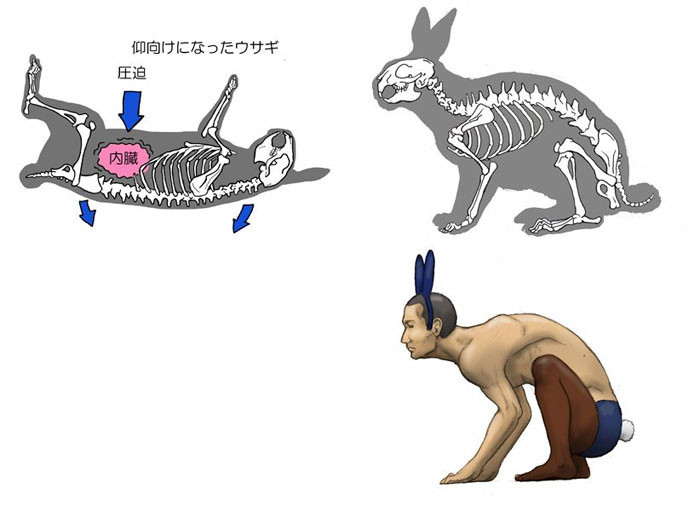 Satoshi Kawasaki
Satoshi Kawasaki
7. The foot of a human elephant and human camel
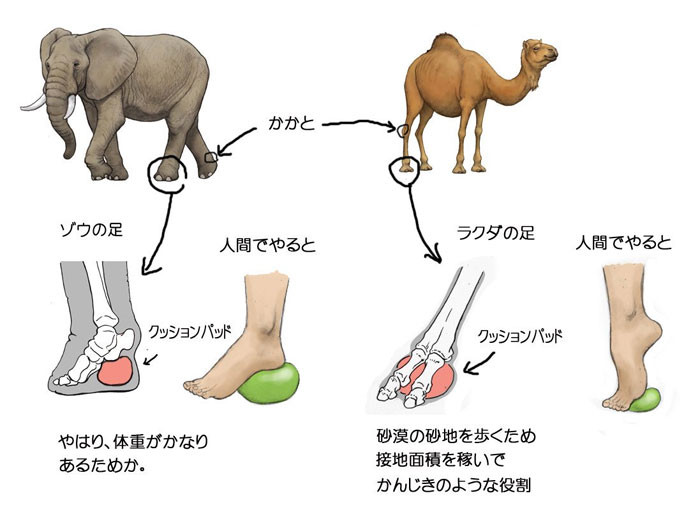 Satoshi Kawasaki
Satoshi Kawasaki8. From human arms to animal fore limbs
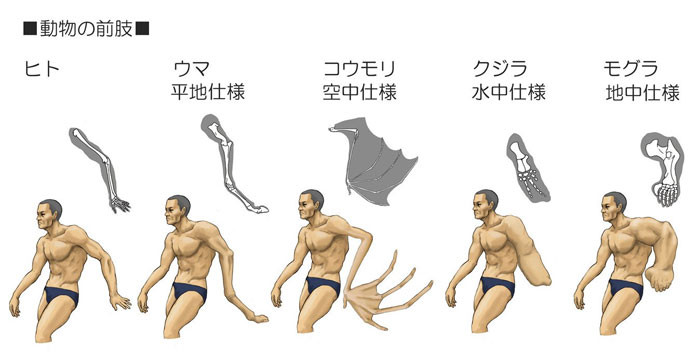 Satoshi Kawasaki
Satoshi Kawasaki
9. Human arm with wings
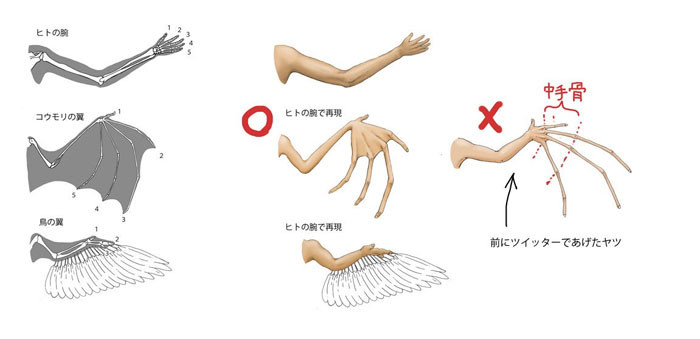 Satoshi Kawasaki
Satoshi Kawasaki10. Human birds a.k.a. harpies
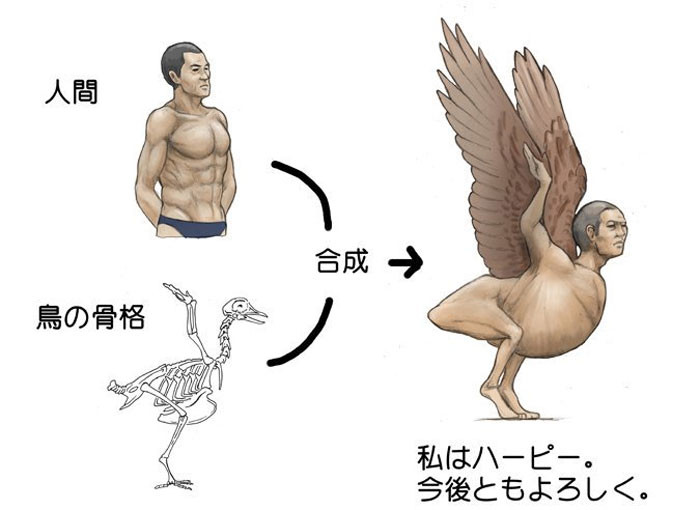 Satoshi Kawasaki
Satoshi Kawasaki
11. Human pigeon
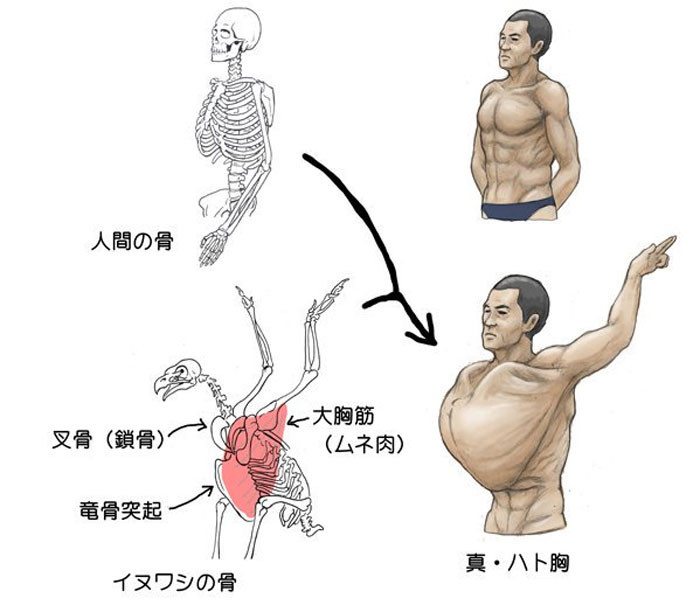 Satoshi Kawasaki
Satoshi Kawasaki12. Human bat wings vs. Human pterosaur
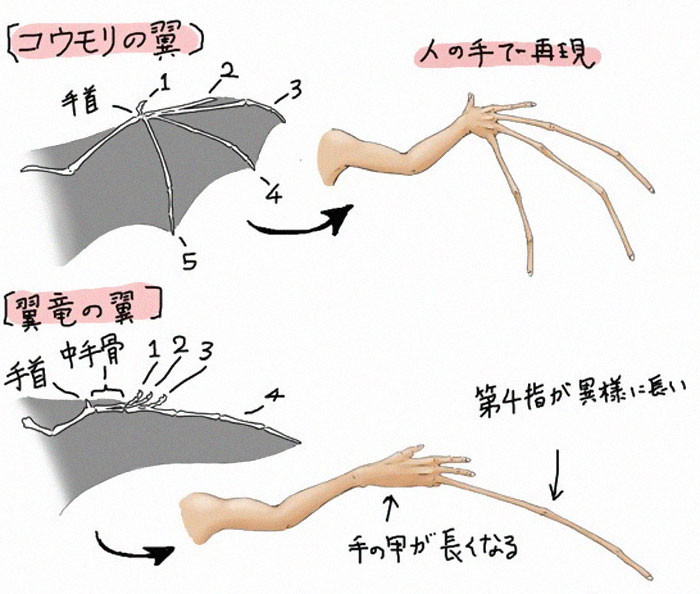 Satoshi Kawasaki
Satoshi Kawasaki
13. There's even a human shellfish
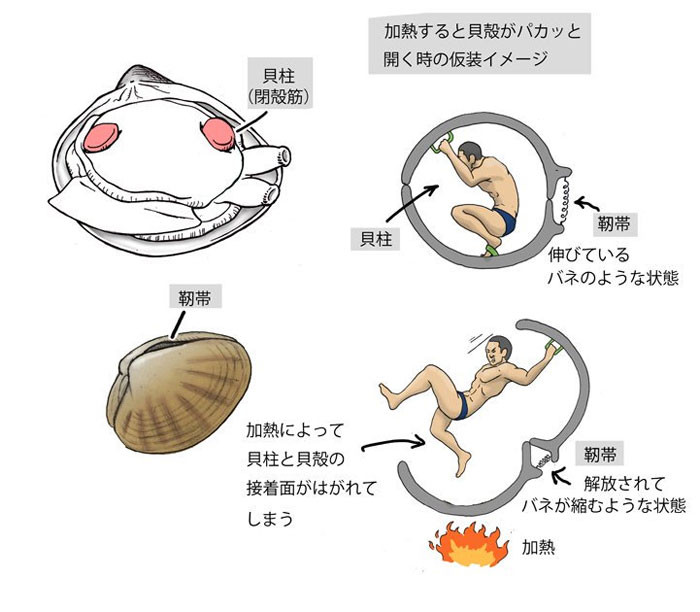 Satoshi Kawasaki
Satoshi Kawasaki14. Beethoven's technique to overcome his deafness
Unlike the ones above, this isn't an illustration of an animal-like human. But it does illustrate how Beethoven was able to create music despite being deaf.
Sound transmission happens in two ways. One is by air vibration and the other is by bone vibration
Beethoven was able to make music because of a thing called bone conduction. It's similar to what dolphins do underwater.
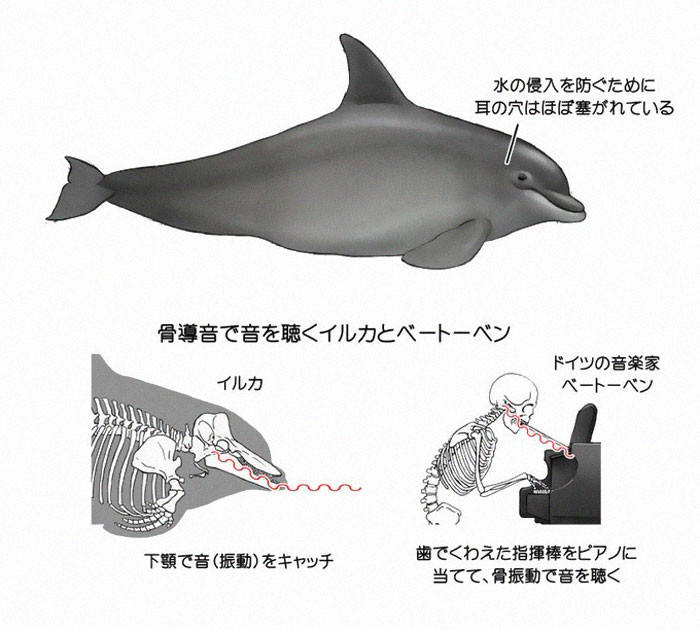 Satoshi Kawasaki
Satoshi Kawasaki
Hybrids of animals and humans are nothing new in the scientific world.
They're no longer just for expressing one's creativity. In fact, scientists are already looking into such developments so that they can produce the necessary organs for transplants.
The list of organ donors is becoming long in recent years. There are not just enough donors for people who need them in time.
Japan's Medical Xpress reports that the country recently voided the ban on creating human-animal hybrids. It approved the appeal of experts from the University of Tokyo to produce a human-mouse hybrid.
The objective of these scientists is to let the human pancreas grow within a mouse. While this isn't similar to the fusion of mice with people, science is getting closer to creating a real-life chimera.
Naturally, such research is often questioned ethically. People want to draw the line between what's morally good and what's not.
If you think about the results alone, you'll see that the purpose of such studies is to save more people. However, people are dangerously close to interfering with nature in ways that our conscience cannot accept.






